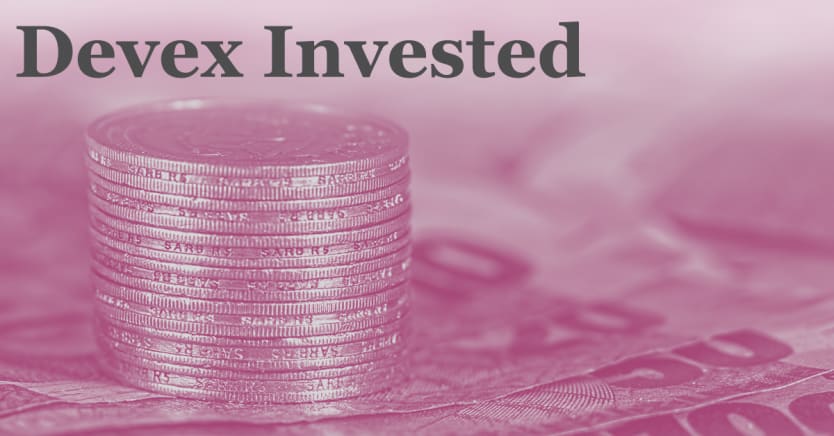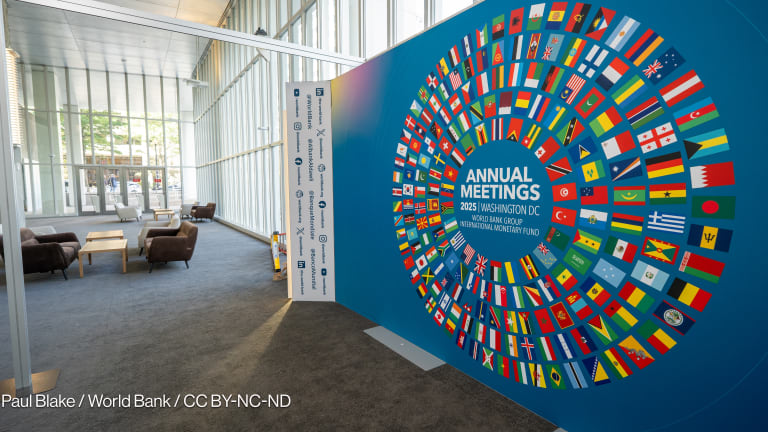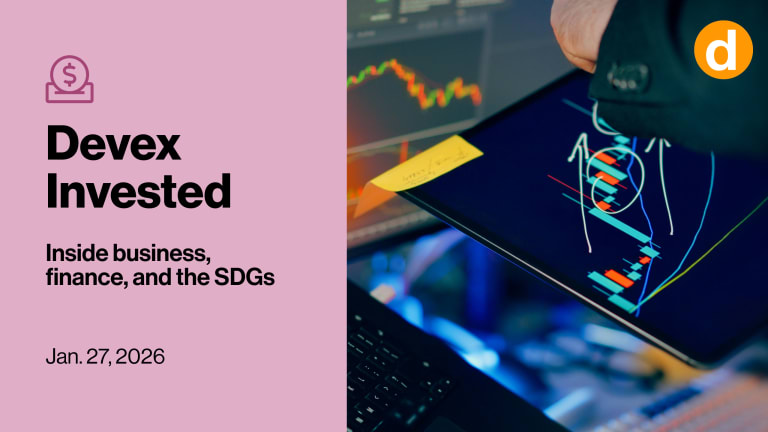Devex Invested: Can development banks finance in common?

The second Finance in Common summit kicks off this week. The hybrid event is billed as the “global summit of all public development banks,” though even organizers admit that perhaps not all the more than 500 banks they claim to represent know much about it. That’s because it’s partly a coalition of networks, largely driven for now by the leaders of the French Development Agency, or AFD.
This is a preview of Devex Invested
Sign up to this weekly newsletter inside business, finance, and the SDGs, in your inbox every Tuesday.
This year is about proving there’s real momentum behind getting development banks aligned, not just with the Paris Agreement on climate, but also the Sustainable Development Goals in general. Italy’s Cassa Depositi e Prestiti and the International Fund for Agricultural Development are hosting the 2021 edition in Rome, which AFD points to as a sign that the Finance in Common “movement” is gaining traction.
Here’s what we’ve got our eye on: At 1 p.m. CET Wednesday, leaders of the world’s major multilateral development banks are set to discuss the upcoming G-20 and COP 26 summits. We wrote earlier this year about MDBs’ deliberations on a possible $250 million grant facility designed to support the banks’ Paris alignment efforts. Some pooh-poohed that as insufficiently ambitious, so it will be interesting to see what, if anything, the heads bring to the table.
Read: Can public development banks muster a ‘movement’?
From the Pro archives: At last year’s summit, French President Emmanuel Macron said the public development banks were “creating a new global public financing infrastructure, of a kind that had never been conceived at this level.”
She’s a survivor
The big news of last week’s World Bank-International Monetary Fund annual meetings happened on the first day: IMF Managing Director Kristalina Georgieva survived the Doing Business scandal and will remain in her post. As for other news on the meetings:
• The IMF’s Resilience and Sustainability Trust is going from idea to reality. The trust fund could be a lifeline for many nations — whether they’re low- or middle-income — including for climate adaptation.
• World Bank President David Malpass faces pressure from civil society groups that want the institution to cut off all support for any fossil fuels and help countries decarbonize. All eyes are on COP 26, when the bank is set to give more details on its Paris alignment plans.
• The G-20 endorsed a new sustainable finance road map. You can find it here, and we hope to tell you more about it in the future.
Learn more: Our colleague Shabtai Gold recapped the week here.
ICYMI: IMF warns low-income countries face darkening economic prospects
Gateway to Africa
The CDC Group is partnering with DP World, a Dubai-based port company, to invest up to $1.72 billion to improve African ports. The first three projects will be in Egypt, Senegal, and Somaliland, and the initiative will expand over time.
The partnership took four years to develop, is intended to improve trade infrastructure, and “allows businesses to expand and to create jobs” and help people who overpay for imported goods, according to CDC. By 2035, about $51 billion in additional trade is expected to pass through the expanded and modernized ports.
A record year
$6.7 billion+
—The total amount of financing committed by the United States International Development Finance Corporation in fiscal year 2021 — the highest fiscal year total for DFC in 25 years.
Over 65% of DFC’s projects in the fiscal year were in low- and lower-middle-income countries, though it typically doesn’t share how much of the total investment is made in those countries as readily.
ICYMI: What is DFC's mandate? Debate over a bill turns up many answers.
No climate targets without cash
Last month, South Africa issued new climate targets but its ability to achieve them depends on how much financial support they get from others, South Africa’s environment minister Barbara Creecy tells our colleague Anca Gurzu.
“[Our target] is completely dependent on a range of financing sources, bilateral and multilateral support and that support would need to be both in the form of grant financing and concessional financing. There would also be a private investment component,” Creecy says. “We are very clear that where we get to on the spectrum between the 2 degrees and the 1.5-degree target really depends on the extent of support we receive from the international community.”
Read: Emission reductions hinge on financial support
What we’re reading
As Lebanon restarts IMF talks, experts fear needed reforms won’t come. [Devex Pro]
An analysis finds that the G-20’s debt relief efforts are falling short. [Financial Times]
An opinion piece from BlackRock chairman and CEO Larry Fink on what’s needed to achieve a net-zero transition — including from multilateral development banks and wealthy countries. [New York Times]
The U.S. Department of Labor proposes new rules about how pension funds can factor ESG into decision making. [Pensions & Investments]
Shabtai Gold contributed to this edition of Devex Invested.

Search for articles
Most Read
- 1
- 2
- 3
- 4
- 5









